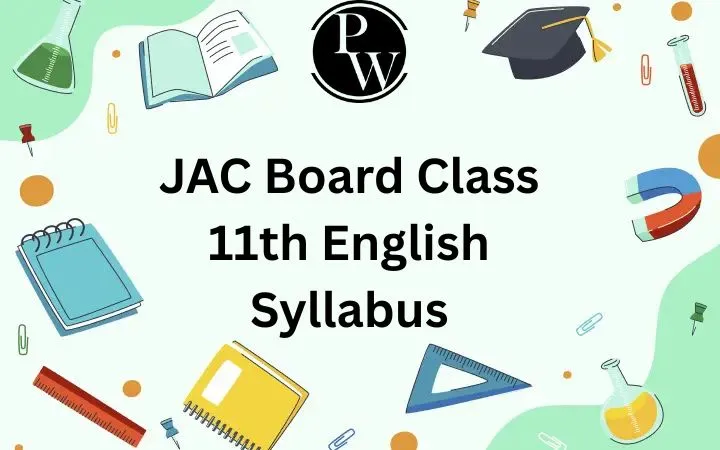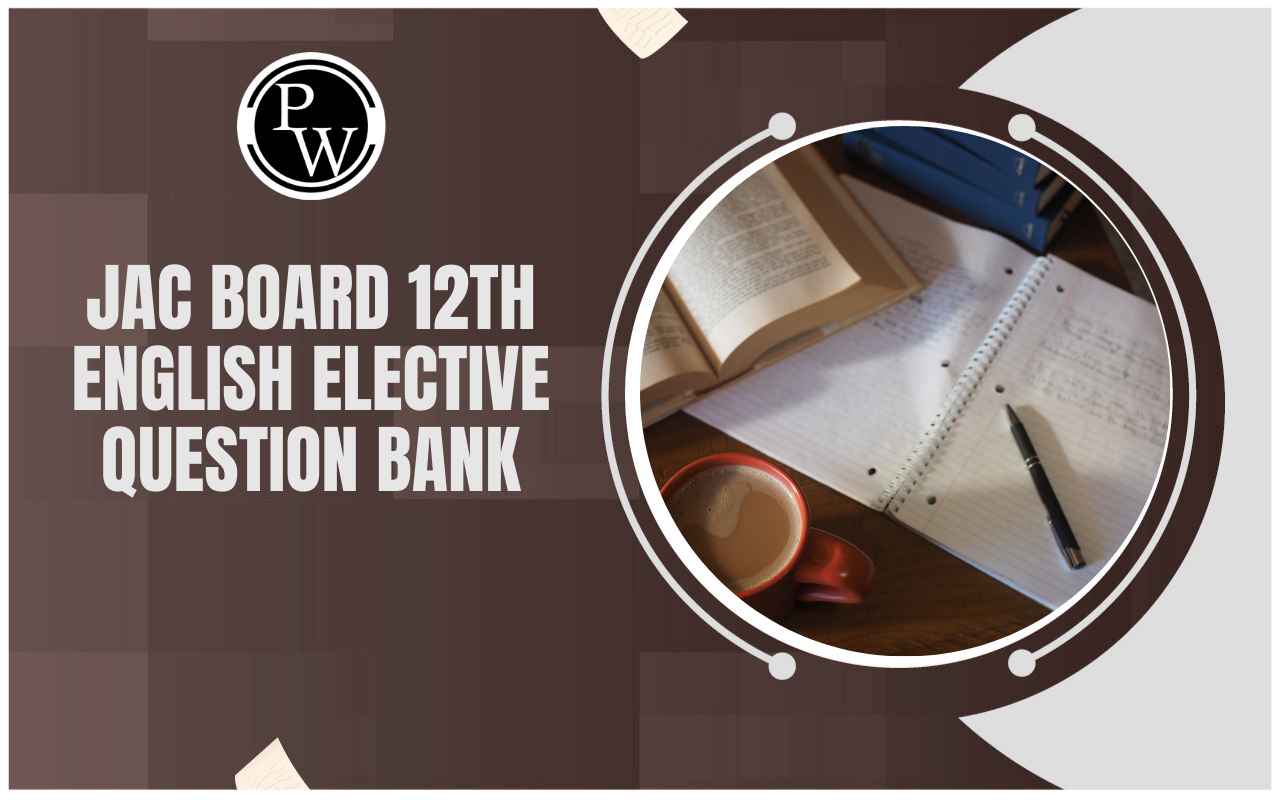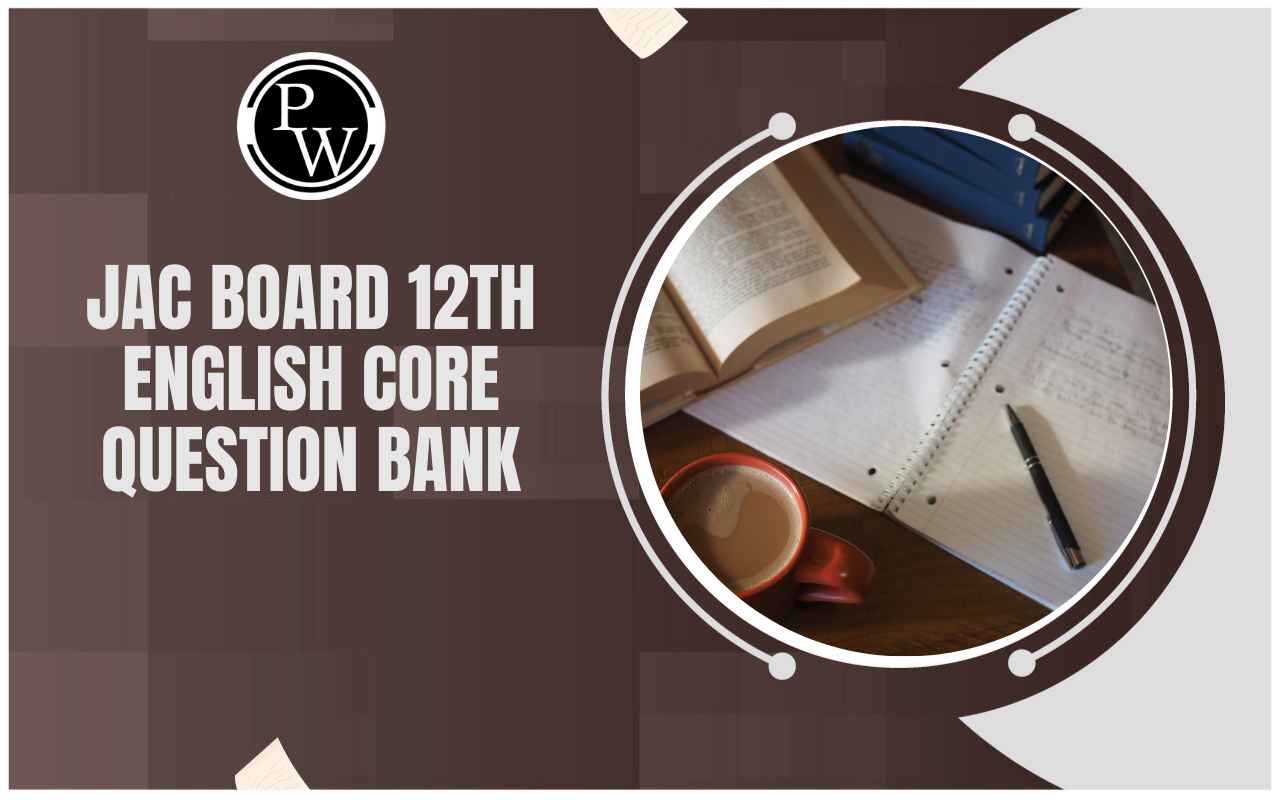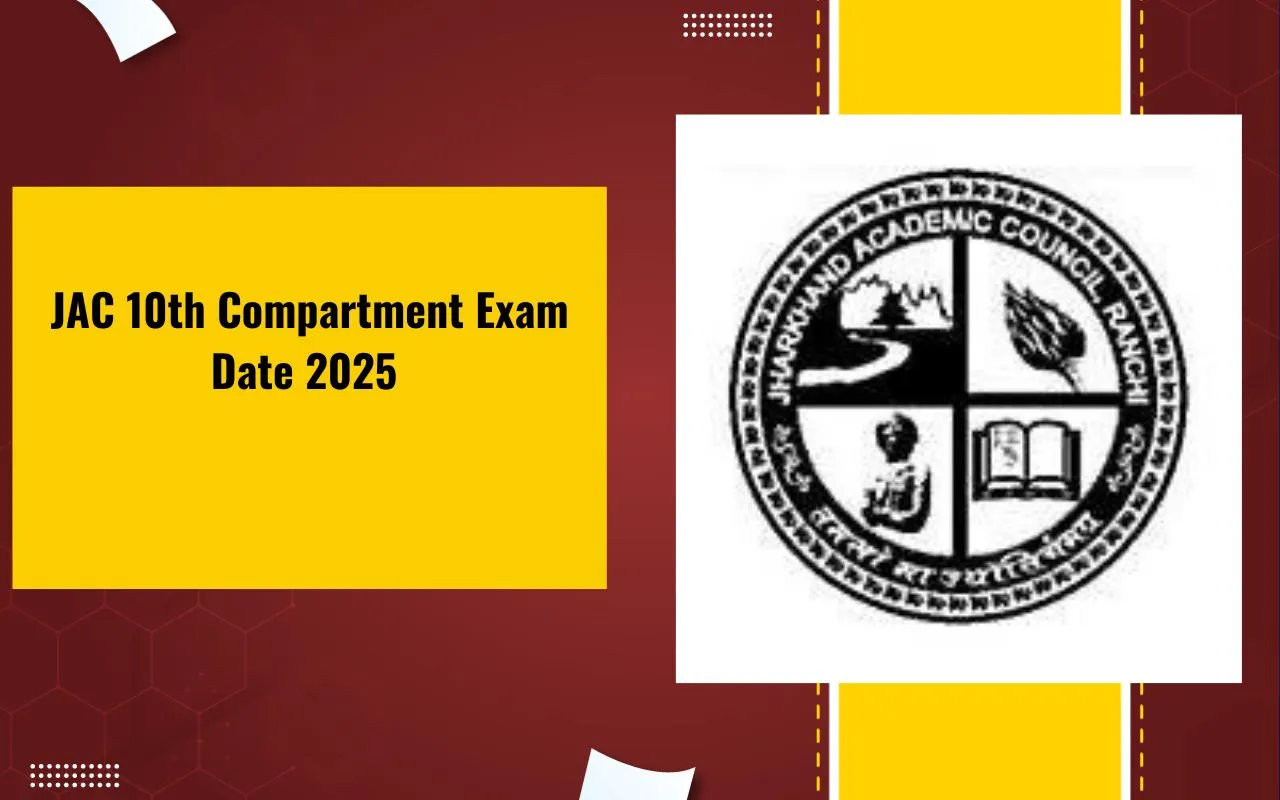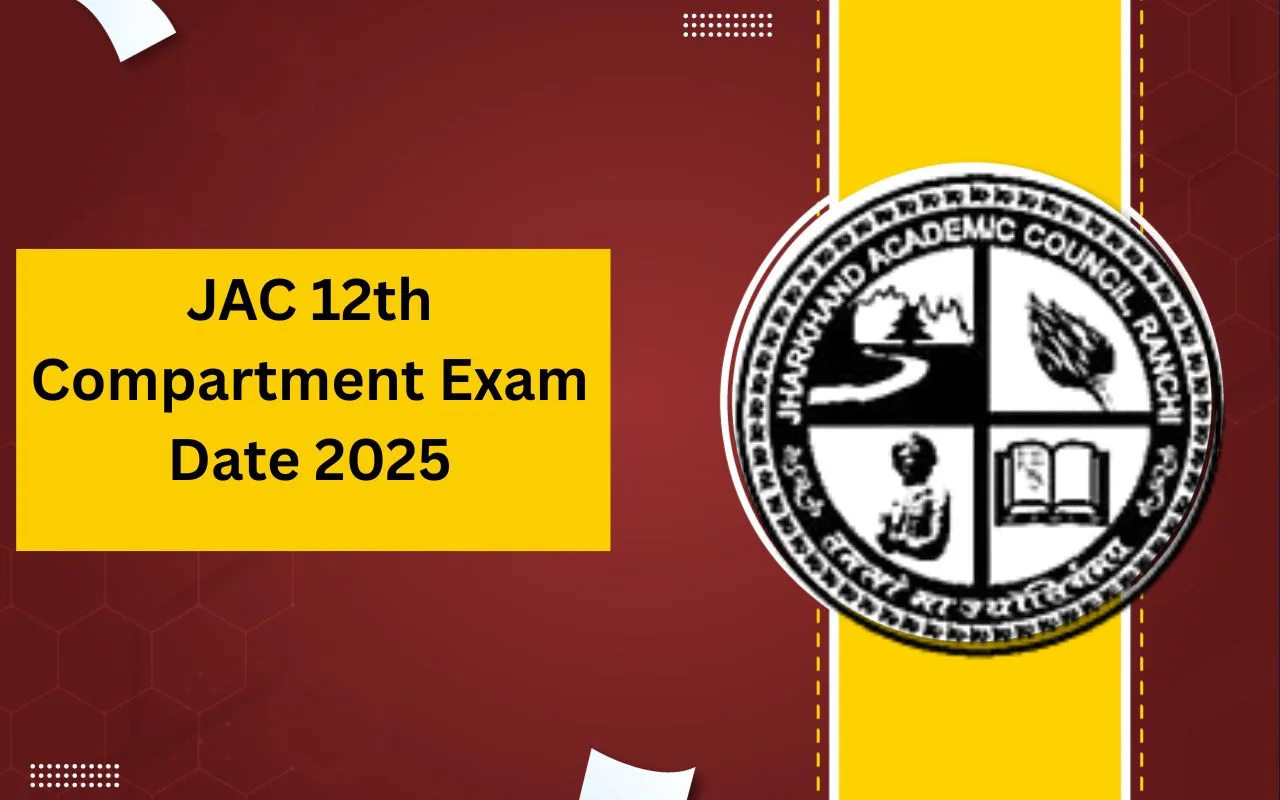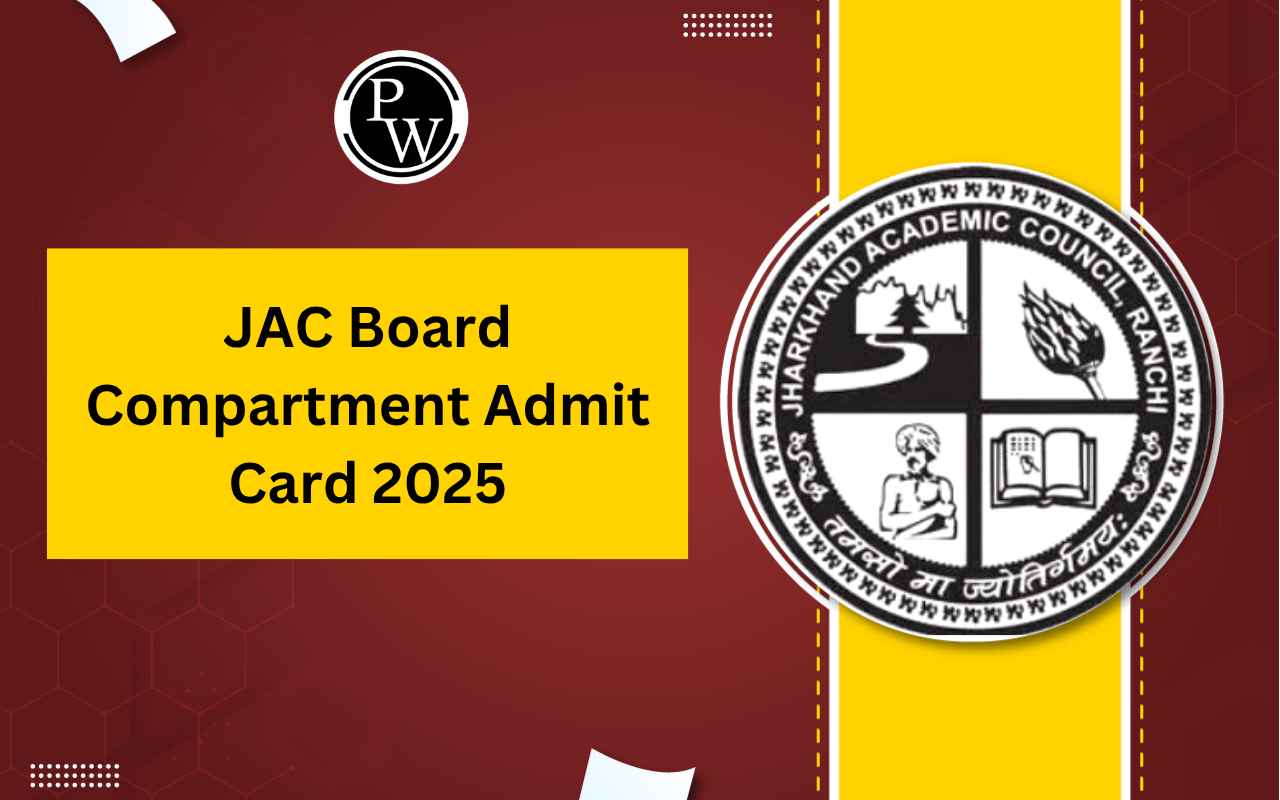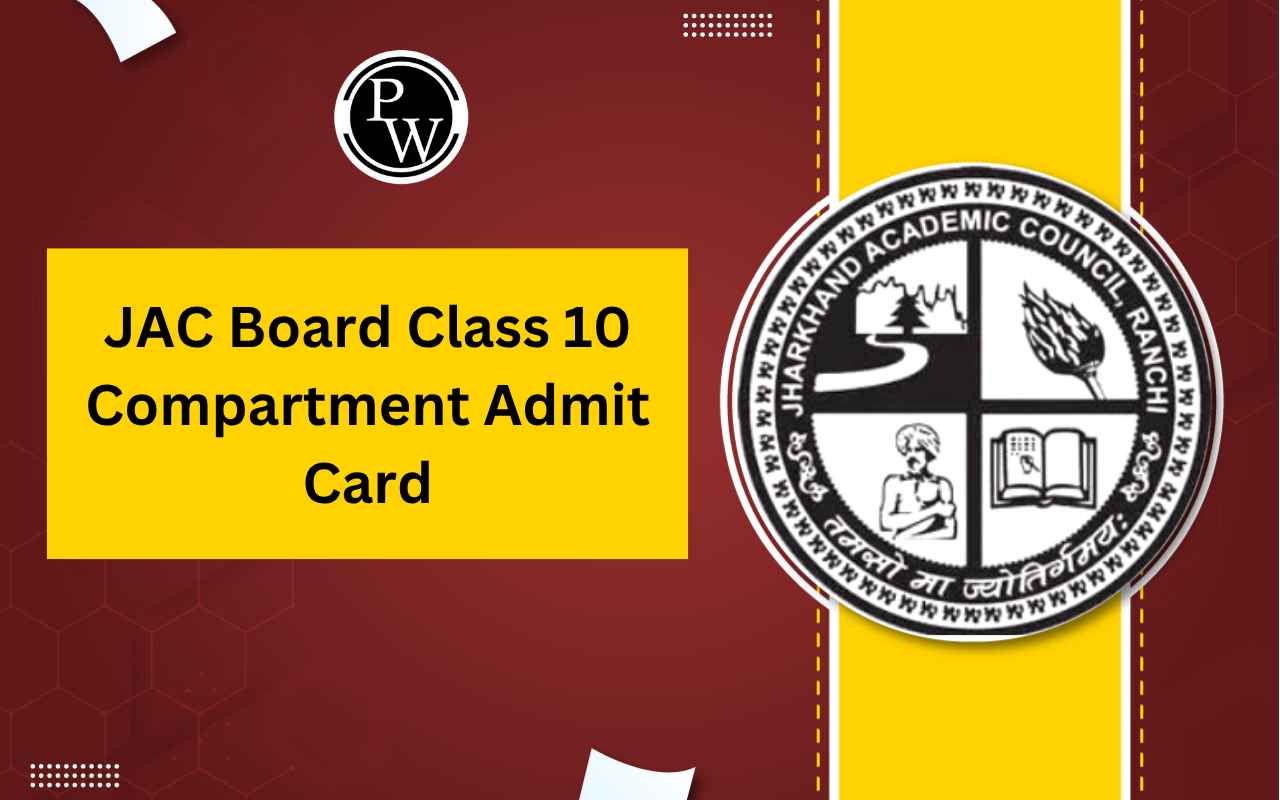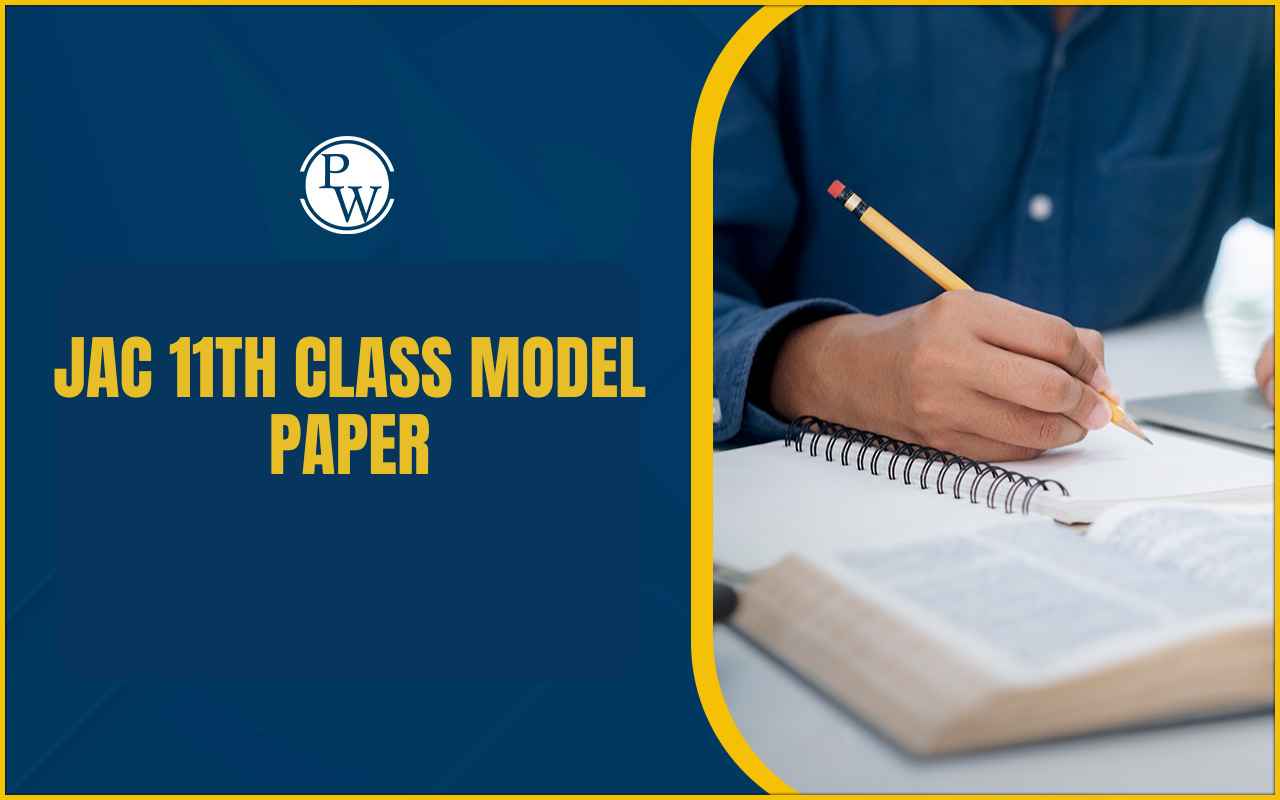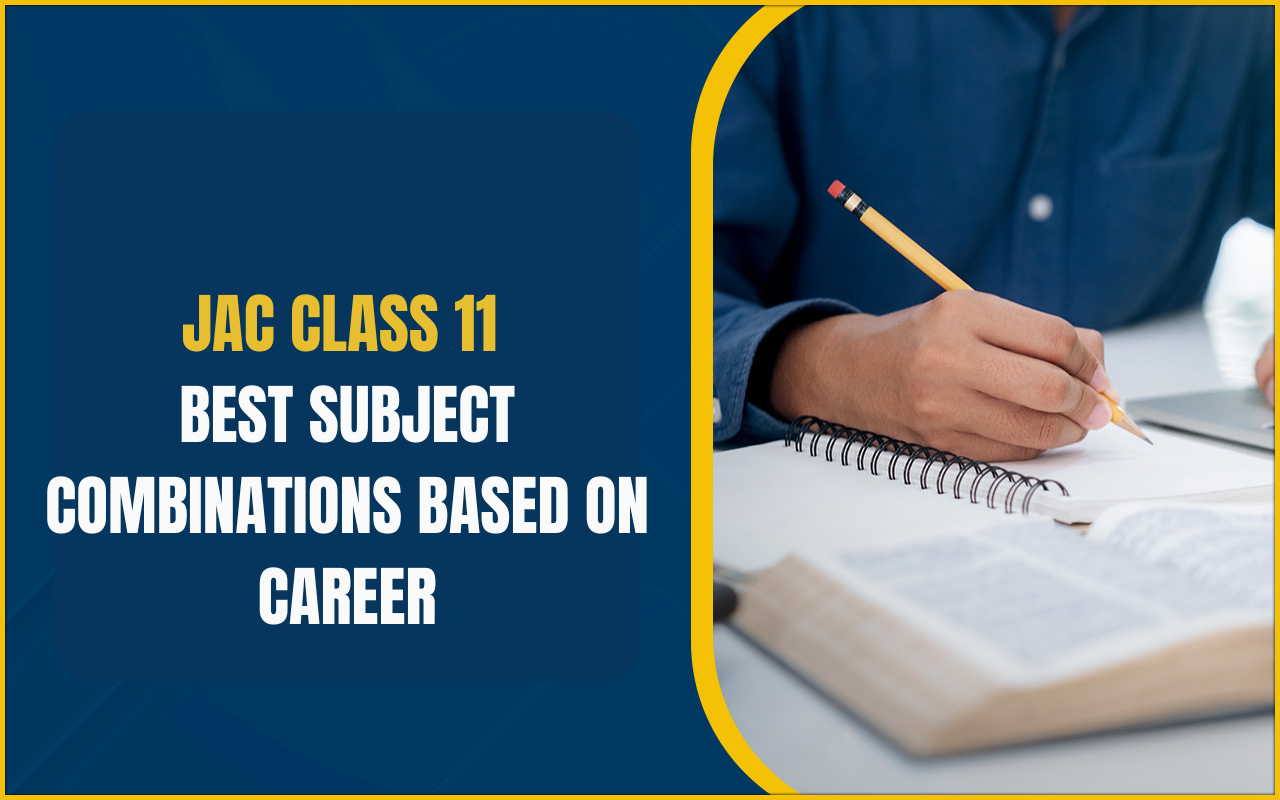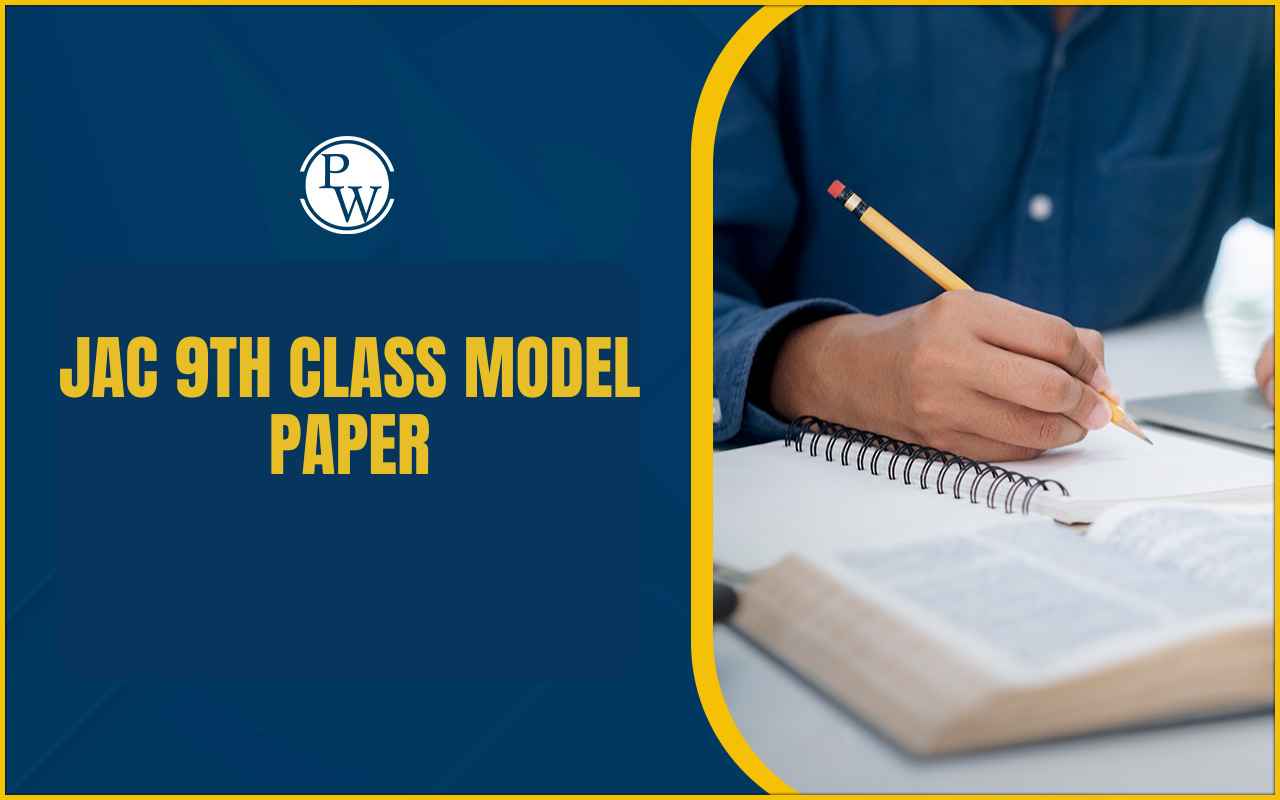
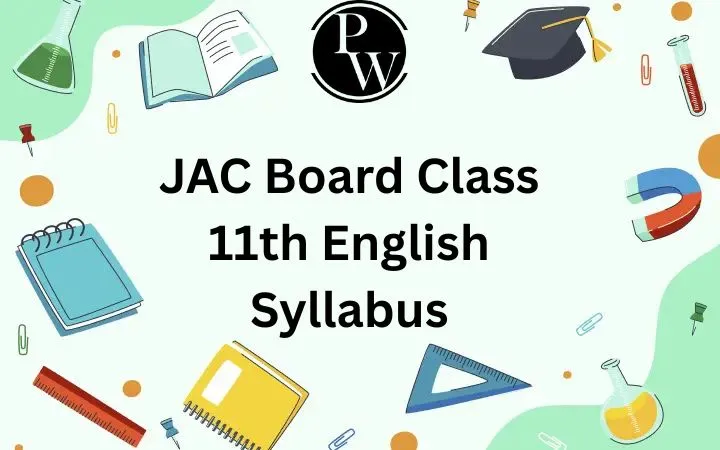
The JAC Board Class 11th English syllabus 2025-26 focuses on enhancing reading, writing, grammar, and literature skills. Students study prose, poetry, and drama from prescribed textbooks like Hornbill and Snapshots.
The syllabus includes comprehension passages, note-making, essay writing, letter writing, and grammar exercises. Literature topics cover works by renowned Indian and international authors.
The syllabus prepares students for board exams and improves their communication skills. Understanding the Jharkhand Board Class 11 English syllabus helps in strategic preparation for exams. Download the JAC 11th English syllabus PDF for complete details and start your preparation effectively for better marks.
JAC Board Class 11th Physics Syllabus
JAC Board Class 11th English Syllabus
Below, we have provided the detailed table for the JAC Board Class 11th English syllabus. It includes the chapters from both the Flamingo (Prose and Poetry) and Vistas (Prose) sections, along with important grammar topics. This breakdown will help students navigate their curriculum and prepare effectively for their exams. Please refer to the table for a comprehensive overview.
|
JAC Board Class 11th English Syllabus |
|
|
Unit |
Chapter Name |
|
Flamingo (Prose) |
1. The Portrait of a Lady |
|
2. A Photograph |
|
|
3. We're Not Afraid to Die...If We Can All Be Together |
|
|
4. Discovering Tut: The Saga Continues |
|
|
5. Landscape of the Soul |
|
|
6. The Browning Version |
|
|
7. The Adventure |
|
|
Flamingo (Poetry) |
1. A Photograph |
|
2. The Laburnum Top |
|
|
3. The Voice of the Rain |
|
|
4. Childhood |
|
|
5. Father to Son |
|
|
6. A Thing of Beauty |
|
|
Vistas (Prose) |
1. The Summer of the Beautiful White Horse |
|
2. The Address |
|
|
3. Ranga's Marriage |
|
|
4. Albert Einstein at School |
|
|
5. Mother's Day |
|
|
6. The Ghat of the Only World |
|
|
Grammar |
1. Determiners |
|
2. Tenses |
|
|
3. Modals |
|
|
4. Clauses |
|
JAC Board Class 11 Biology Syllabus
Detailed Overview of JAC Board Class 11th English Syllabus
Here’s a detailed overview of the JAC Board Class 11th English Syllabus:
1. Flamingo (Prose)
-
Chapter 1: The Portrait of a Lady – A story about the bond between a grandson and his grandmother, focusing on her simplicity and love for nature.
-
Chapter 2: A Photograph – A reflective poem about the passage of time and the loss of loved ones.
-
Chapter 3: We’re Not Afraid to Die... If We Can All Be Together – A narrative of a family’s survival story in a storm, highlighting courage and resilience.
-
Chapter 4: Discovering Tut: The Saga Continues – An article on the discovery of King Tut’s tomb and the mystery surrounding it.
-
Chapter 5: Landscape of the Soul – A comparison of Chinese and Western art, exploring the concept of soul in art.
-
Chapter 6: The Browning Version – A story about a teacher’s relationship with his students, focusing on emotional transformation
-
Chapter 7: The Adventure – A story about the author's experiences in the wild, reflecting on human nature.
2. Flamingo (Poetry)
-
Poem 1: A Photograph – Poem reflecting on the photographer’s role in preserving memories and the inevitable passage of time
-
Poem 2: The Laburnum Top – A poem describing the imagery of a laburnum tree and the life that it sustains.
-
Poem 3: The Voice of the Rain – A poem personifying rain, describing its eternal cycle and its link to nature.
-
Poem 4: Childhood – A reflective poem about the loss of innocence and the harsh realities of growing up.
-
Poem 5: Father to Son – A poem about the strained relationship between a father and his son.
-
Poem 6: A Thing of Beauty – A poem by John Keats emphasizing the eternal beauty found in nature and art.
3. Vistas (Prose)
-
Chapter 1: The Summer of the Beautiful White Horse – A story about two Armenian boys who face moral dilemmas and their relationship with society.
-
Chapter 2: The Address – A heart-wrenching story about a woman’s search for a memento of her past after World War II.
-
Chapter 3: Ranga’s Marriage – A humorous and insightful tale about the traditions of marriage and the culture of a rur
-
Chapter 4: Albert Einstein at School – A fictional account of Albert Einstein's school days and his struggles with the education system.
-
Chapter 5: Mother’s Day – A one-act play focusing on the changing dynamics of mother-child relationships.
-
Chapter 6: The Ghat of the Only World – A sensitive narrative about the author’s personal loss and the spiritual journey to find peace.
4. Grammar
-
Determiners – Understanding and using determiners like articles, demonstratives, possessives, etc.
-
Tenses – A comprehensive study of all tenses (present, past, future) and their various forms and uses.
-
Modals – Usage of modal verbs to express necessity, possibility, permission, and obligation.
-
Clauses – Focus on types of clauses (independent, dependent) and how they function in sentences.
Steps to download the JAC Board Class 11th English Syllabus
Here’s how to download the JAC Board Class 11th English Syllabus:
-
Go to the JAC Board website: https://jac.jharkhand.gov.in
-
Find the "Syllabus" section: Look for the syllabus link in the menu or under the "Student" section.
-
Select Class 11th: Choose Class 11th from the available options.
-
Choose "English" subject: Find the English syllabus under the list of subjects.
-
Click on the syllabus link: Open the English syllabus for Class 11th.
-
Download the PDF: Click the download button to save the syllabus to your device.
JAC Board Class 11th Geography Syllabus
JAC Board Class 11th English Syllabus PDF Download
Below, we have provided the JAC Board Class 11th English Syllabus in PDF format for easy download. This syllabus includes all the chapters from the Flamingo and Vistas textbooks, along with important grammar topics such as determiners, tenses, modals, and clauses. The document will guide students in navigating their curriculum and help them prepare effectively for their exams. Click the link below to download the syllabus and begin your preparation.
JAC Board Class 11th English Syllabus
Study without using the internet
JAC Board Class 11th English Exam Pattern and Marking Scheme
Below, we have provided the JAC Board Class 11th English Exam Pattern and Marking Scheme to help you understand the structure and distribution of marks for the exam. The pattern includes sections like reading comprehension, writing skills, literature, and grammar. For the most accurate and updated information, it is recommended to check the official JAC Board website.
|
JAC Board Class 11th English Exam Pattern and Marking Scheme |
|||
|
Section |
Type of Questions |
Marks per Question |
Total Marks |
|
Section A: Reading Comprehension |
Passages based on unseen comprehension |
1–2 marks per question |
20 marks |
|
Section B: Writing Skills |
Letter writing, Article writing, Speech writing, Notice writing, Report writing |
5 marks per question |
20 marks |
|
Section C: Literature |
Prose and Poetry questions (Flamingo & Vistas) |
3–4 marks per question |
40 marks |
|
Section D: Grammar |
Determiners, Tenses, Modals, Clauses |
1 mark per question |
10 marks |
JAC Board Class 11th English Assessment and Projects
The JAC Board Class 11th English Assessment includes both theory and internal assessments. The theory exam will cover reading comprehension, writing skills, grammar, and literature. Additionally, students are required to complete projects as part of their internal assessment.
These projects may involve creative tasks like presentations, essays, or group discussions, aimed at enhancing language skills and critical thinking.
Regular assessments throughout the year contribute to the final grade, so it is important to stay consistent with both the theory and project work.
Preparation Tips for JAC Board Class 11th English Exam
Here are some preparation tips for the JAC Board Class 11th English Exam:
1. Understand the Syllabus
-
Familiarize yourself with the Flamingo and Vistas chapters.
-
Focus on key poems and stories, and understand their themes, characters, and messages.
2. Practice Reading Comprehension
-
Regularly practice unseen passages to improve your reading speed and comprehension skills.
-
Focus on understanding the main idea, tone, and message of the passage.
3. Focus on Writing Skills
-
Practice writing formal letters, articles, speeches, and notices.
-
Follow the prescribed format and keep your writing clear, concise, and to the point.
4. Revise Grammar Topics
-
Pay attention to tenses, modals, determiners, and clauses.
-
Solve grammar exercises from previous year papers and practice writing sentences.
5. Understand the Literature
-
Read the prose and poetry chapters thoroughly and understand the key ideas.
-
Make notes on important themes, characters, and events.
-
Practice writing answers to literature questions focusing on the central message of the chapters.
6. Write Practice Essays
-
Practice writing essays on a variety of topics, focusing on structure, argument flow, and language.
JAC Board Class 11th English Syllabus FAQs
What is included in the JAC Board Class 11th English syllabus?
The syllabus includes prose, poetry, grammar, and writing skills.
How many parts are there in the syllabus?
The syllabus is divided into two parts literature and grammar.
How to download JAC Board syllabus?
You can download the JAC Board syllabus from here or even from the official website of JAC Board (jac.jharkhand.gov.in/jac).
Which textbooks are prescribed for Class 11th English?
Flamingo (Prose and Poetry) and Vistas (Prose).

